Submit a link
Start a discussion
-
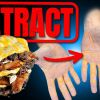 +2 +1
+2 +1Headlines Deceive! Major Carnivore Diet Case Backfires
-
 +12 +2
+12 +2Wikenigma - An Encyclopedia of Unknowns
Wikenigma is a unique wiki-based resource specifically dedicated to documenting fundamental gaps in human knowledge.
-
 +3 +1
+3 +1#46: Winston Churchill’s Ass, Alcohol/Cancer, Foxes | Robert Sapolsky Father-Offspring Interviews
-
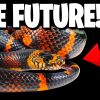 +2 +1
+2 +1The Future of Reptiles Is Hybrids, Here’s Why!
-
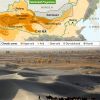 +19 +2
+19 +286 Stories of Progress from 2024
Not everything that happened this year was terrible.
-
 +3 +1
+3 +1Why Big Pharma Tests Your Medication on Beagles
-
 +6 +1
+6 +1I Went Vegan and My Cholesterol Went Up!
1 comments by Gozzin -
 +3 +1
+3 +1Protein for Longevity: Debunking the Plant vs. Animal Protein Debate
-
 +3 +1
+3 +1Rethinking Obesity: Time to Stop Blaming Calories
-
 +37 +7
+37 +7Your Gut Microbiome: The Most Important Organ You’ve Never Heard Of | Erika Ebbel Angle | TEDxFargo
-
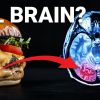 +4 +1
+4 +1The $212 Billion Dollar Food ingredient poisoning your Brain
1 comments by Gozzin -
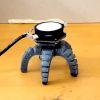 +2 +1
+2 +1Researchers Create ‘Roboshroom,’ a Mushroom-Controlled Robot
-
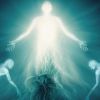 +2 +1
+2 +1Quantum Soul: Researchers Seek to Unlock the Mystery of Life Beyond Death
Recently, scientists Edward W. Kamen from the Georgia Institute of Technology and Roger D. Kamen from Ferris State University have proposed a new theory that the human soul might actually be a type of quantum field.
-
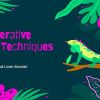 +2 +1
+2 +1Cooperative Care Techniques & Reptile Welfare Talk
-
 +4 +1
+4 +1Leonardo da Vinci's Forgotten Experiments Explored Gravity as a Form of Acceleration
A new look at da Vinci’s papers reveals his insightful attempts to probe the nature of gravity 500 years ago
-
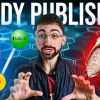 +24 +3
+24 +3Heart of the Matter: Higher LDL on Keto Does NOT Mean More Plaque.
-
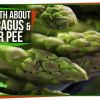 +2 +1
+2 +1The Truth About Asparagus and Your Pee
-
 +2 +1
+2 +1This Disease is Deadlier Than The Plague
-
 +3 +1
+3 +1What the FDA's ban of BVO — a soda additive and flame retardant — says about food safety in America
"It's disgraceful that it took decades of regulatory inaction to protect consumers from this dangerous chemical"
-
 +1 +1
+1 +1TWiV 1130: Clinical update with Dr. Daniel Griffin
Good info on long covid,among other topics.




















